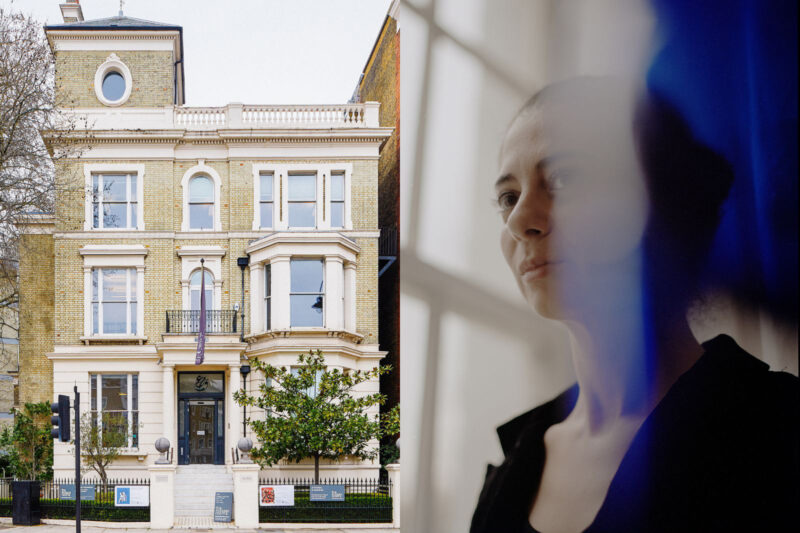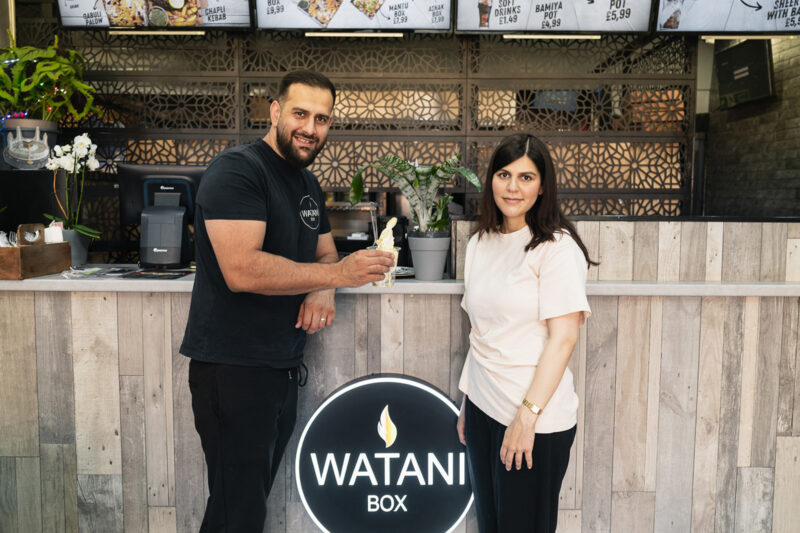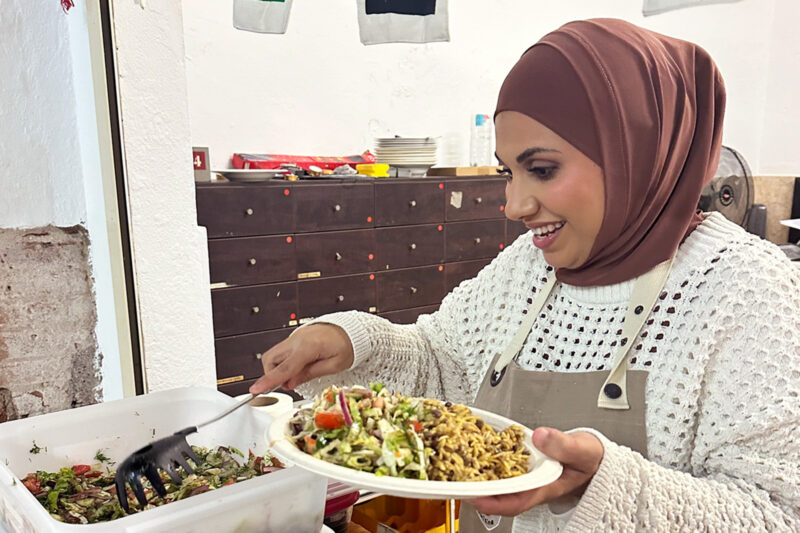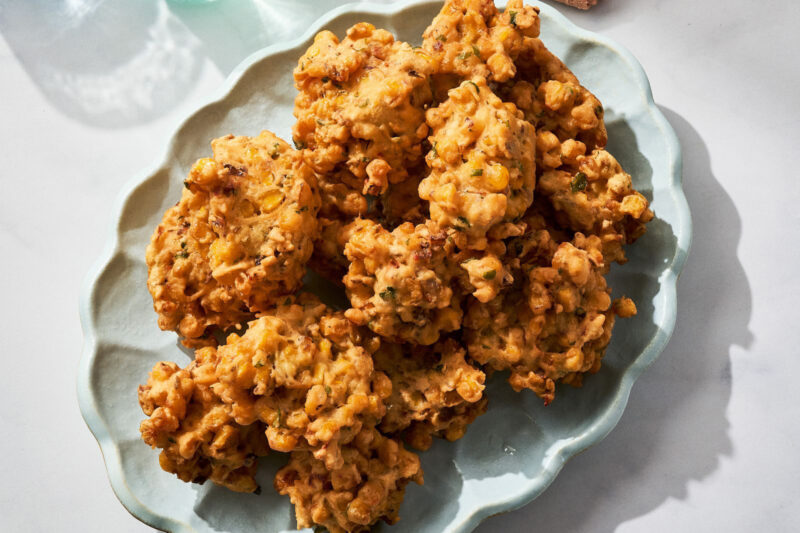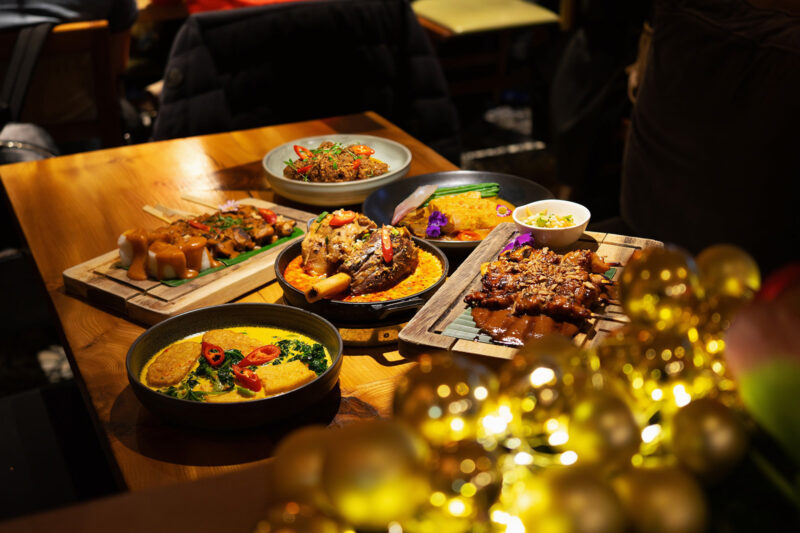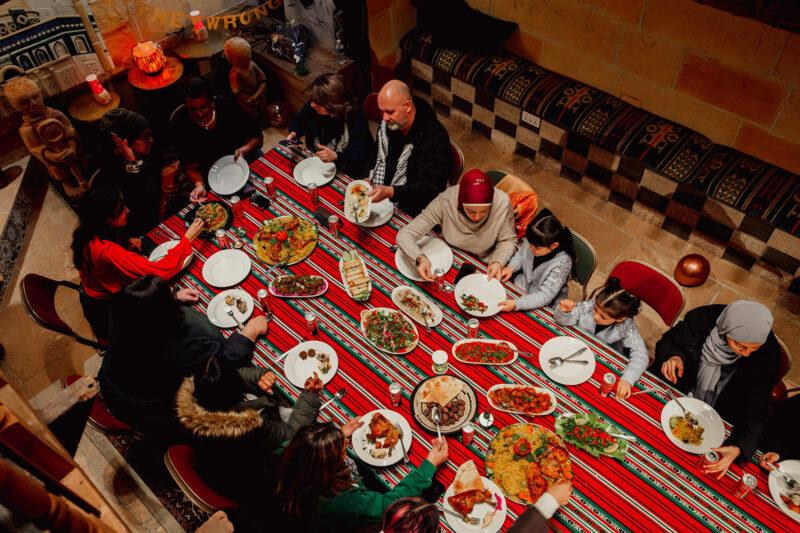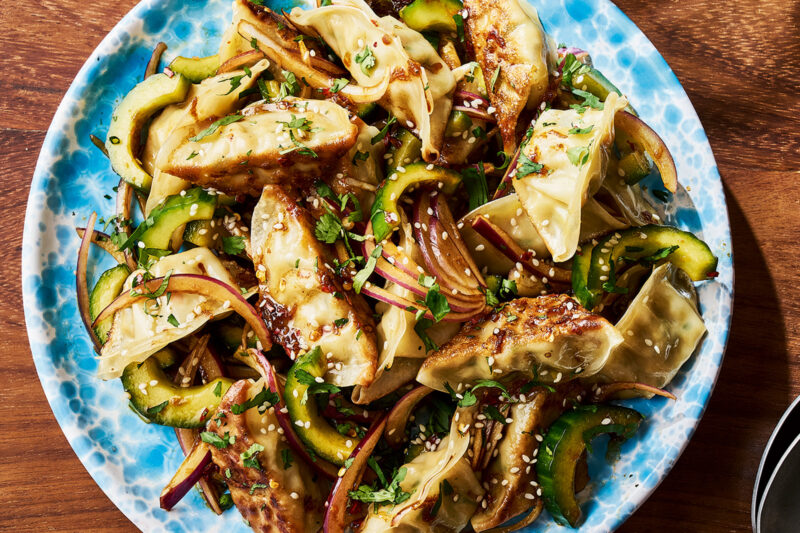Filling the Yemen-sized hole in my heart and stomach
From sumptuously spiced family feasts to glorious coffee and pastries, the country’s cuisine deserves to be among the UK’s favourites
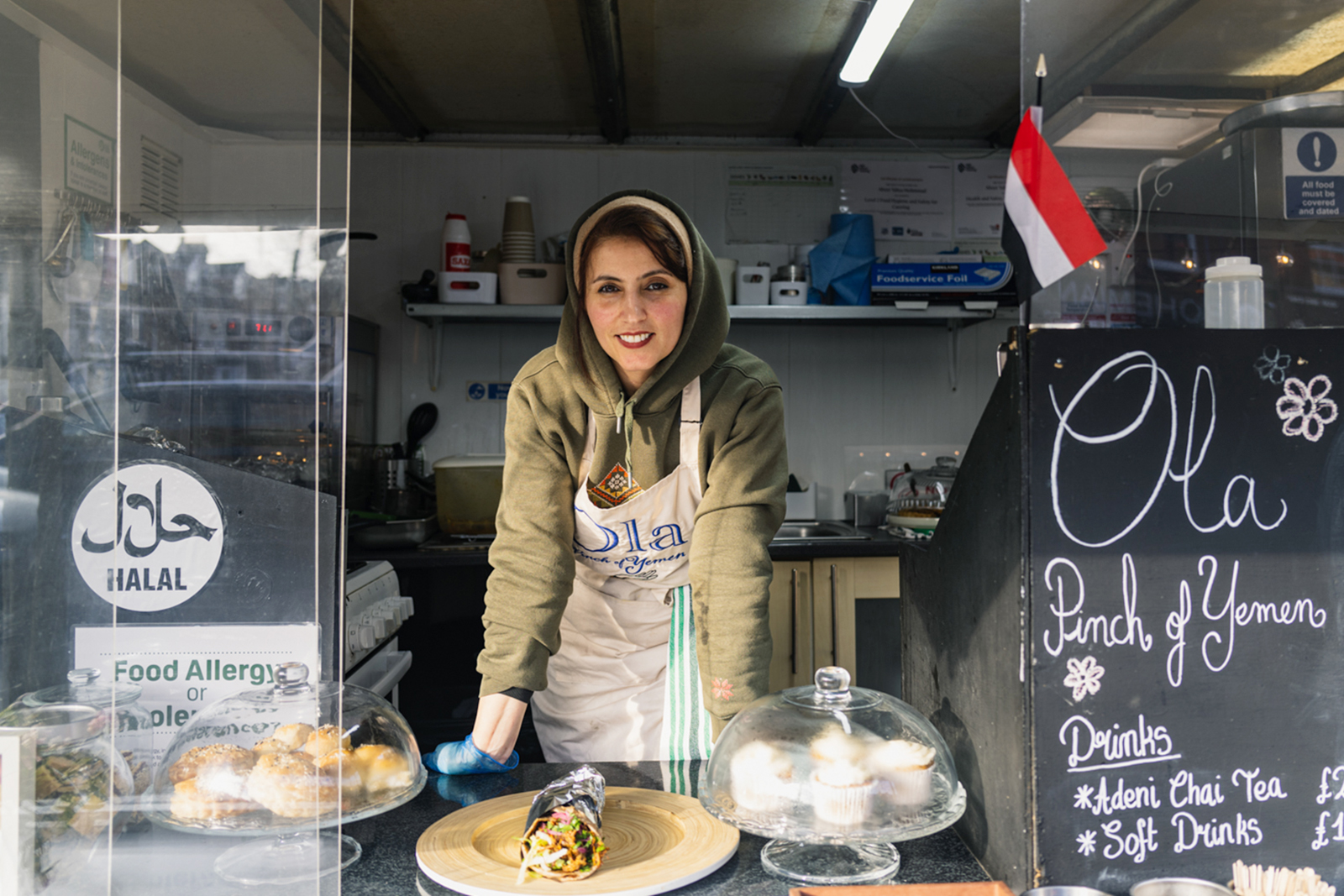
Between 2016 and 2018, I lived in Amman, the capital of Jordan. Alongside national staples such as mansaf and mujadara, that time marked my introduction to the delights of Yemeni cuisine. Across the city, Yemeni restaurants abounded: trendy breakfast spots and cafes filled with customers sipping Adeni chai, roadside rest stops on the way to Petra, cheap and cheerful lunch joints by the university campus. At home, large trays of rice topped with chicken mandi, ordered from my local spot, were delivered for gatherings of family and friends.
Moving back to London left a gaping, Yemen-sized hole in my heart and stomach. The lack of Yemeni food in the UK is surprising, given that sailors settling in port cities and towns including Liverpool, Cardiff and Hull in the 19th century established what is now one of the oldest British Muslim communities. Recent estimates suggest that up to 80,000 people in the UK are of Yemeni descent.
Fortunately, my Yemeni dental hygienist recently recommended to me a stall in north-west London. Established in 2024 and standing at Cricklewood Market Place, Ola Pinch of Yemen is an absolute joy. Its proprietor, Abeer Yahya Mohammed, hails from Hajjah in the north-west of the country, where bread takes pride of place over rice.
Mohammed, 46, is a passionate baker and shipped her own tandoor oven over from Yemen — a journey that took three months. Now, she makes fresh bread in her London garden. Her stall also offers delicious pastries including khaliat nahal — stuffed with cheese, topped with nigella seeds and doused in honey — and her own take on bint al-sahn, which is traditionally made from up to 60 sheets of paper-thin pastry and lashings of butter. Her version comes in miniature form, comprising only five layers, and is easily eaten on the hoof.
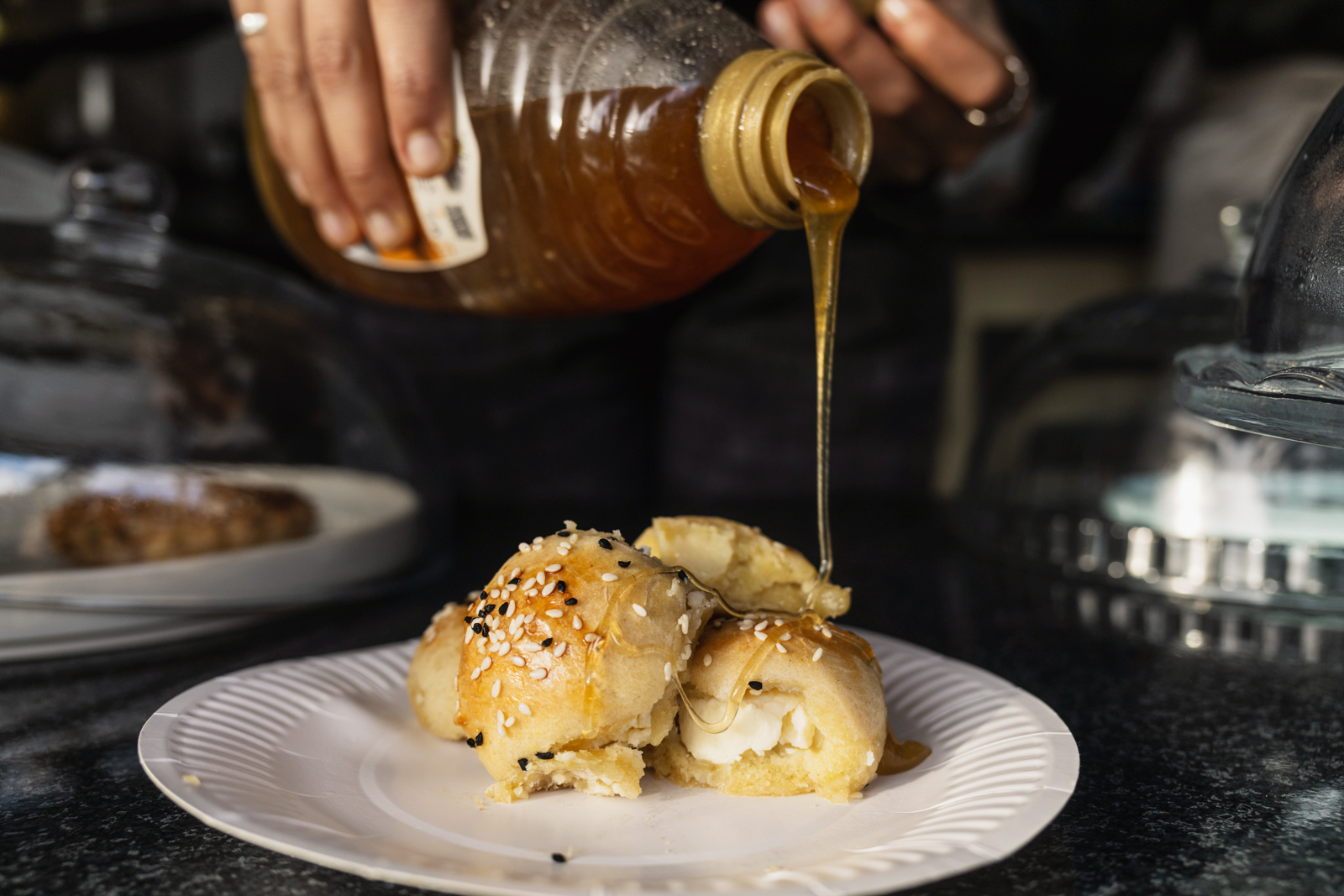
Boxes of chicken mandi and rice (£9.50) are a firm local favourite, fragrant with saffron, cumin, cloves, cardamom and ginger. Mohammed adds the essential smoke by wrapping the cooked meat in foil with a smouldering charcoal. The dish is served with zahawig, a spicy Yemeni salsa of tomatoes, chilli, garlic, cumin and coriander.
For customers on the go, there’s also a chicken mandi wrap (£7.50) of boneless breast meat, salad and lightly pickled red onion wrapped in a charred house-made khobz. The chicken is beautifully spiced and the crispness and chew of the flatbread makes for a perfect quick lunch. There is also a shredded beef version (£8) inspired by fahsa, a traditional slow-cooked stew bursting with fenugreek. The filling is generous, succulent and spiked with delicate acid from those moreish red onions.
As good as these dishes are, I am overjoyed to learn that my personal favourite makes an occasional appearance on Ola’s Friday specials. As far as I’m concerned, lamb zorbiyan is the jewel of Yemeni cuisine. Traditionally served at weddings and large gatherings, it is a labour of love and a sight to behold.
Yemeni food is a melting pot of influences from the country’s colonial and mercantile past. Zorbiyan’s home is the port city of Aden, which was a part of British India between 1838 and 1937. That history can be seen and tasted in the dish, which bears strong cultural and technical similarities to biryani.
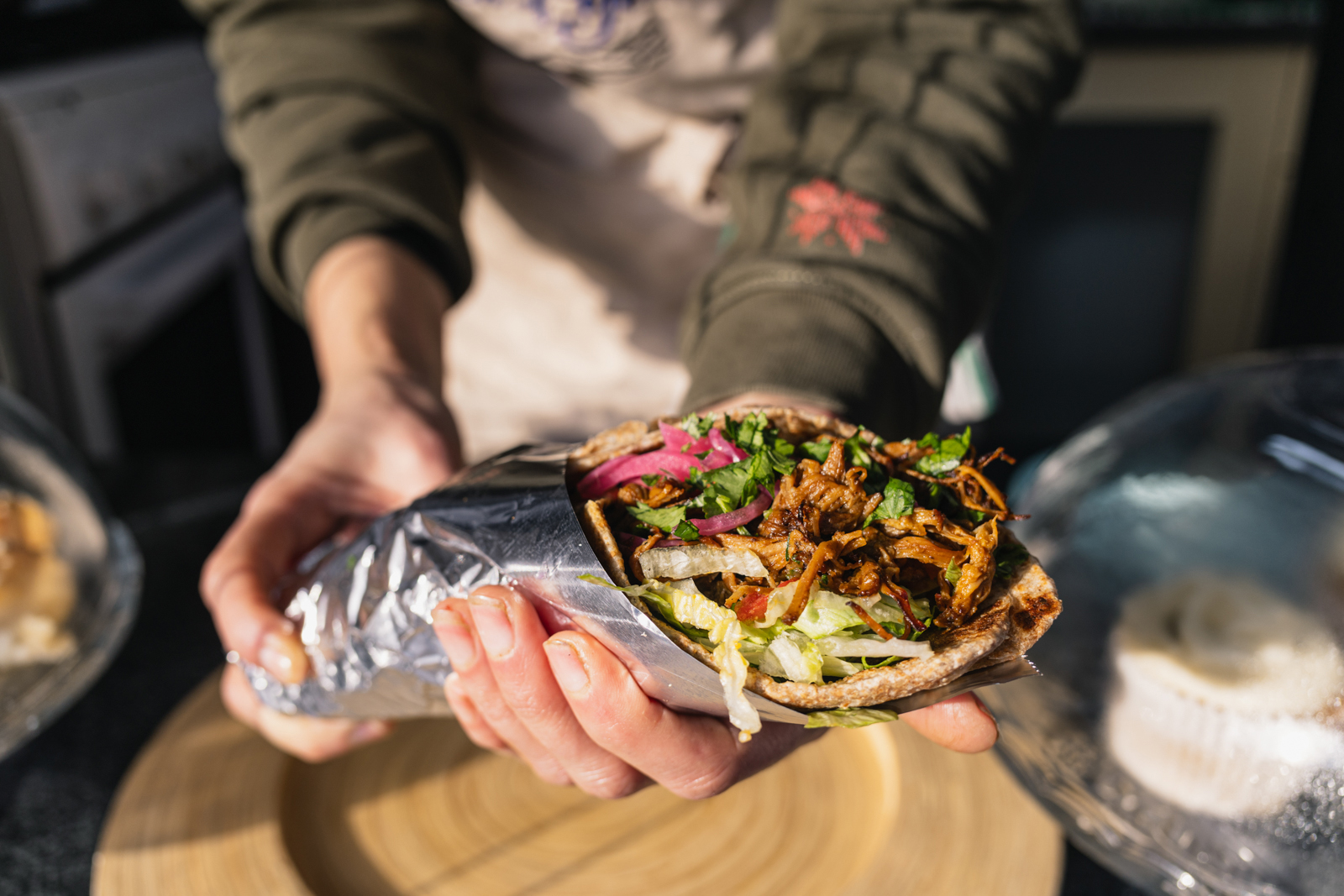
Lamb is marinated in hawaij spices — a blend of cumin, coriander, cloves, turmeric, cardamom and peppercorn — and slow-cooked until it falls off the bone, then layered with long-grain aromatic rice cooked in the lamb broth and topped with crispy onions. After several hours, it is turned out and served with zahawig and bisbaas, an extremely spicy green chilli sauce made with coriander, parsley and lemon.
Served in a brown cardboard box and devoured on the street on a crisp winter afternoon, Mohammed’s zorbiyan has lost none of its pomp. Each mouthful was glorious: aromatic rice, melting lamb, crispy onions, tart zahawig and warming bisbaas, all for just £10. Customers can check Ola’s Instagram page to see if it’s on the Friday specials menu.
In addition to food, Yemen is renowned for its coffee and widely credited as the first place in the world where the commodity was traded. Since its opening in 2022, the Yemeni-owned Qima Cafe in Warren Street, central London, has brought the ethically sourced and impeccably roasted beans of its parent company, Qima Coffee, to visitors.
Qima Cafe’s menu includes a selection of beautifully presented signature drinks including espressos and cold brews. My tip is the qishr latte. Made using the husk of the coffee bean, vanilla syrup and topped with a dusting of cinnamon, it is a fantastic winter warmer with a subtle sweetness.
The food is conceived and prepared to provide the perfect accompaniment to the drinks on offer. Savoury pastries include the pain au za’atar (£5.40), which blends flaky layers with thyme, sesame and sumac. The spiced feta escargot (£7.80) features spiced harissa bechamel, feta, sun-dried tomatoes and a refreshing sprinkling of fresh mint. Meanwhile, the Mediterranean tart is a unique take on the classic croissant, filled with a creamy hummus, grilled aubergines and courgettes, and topped with tahini sauce and pine nuts. The desserts are equally appetising, including a terrific hazelnut rocher cake (£7.20) and a sweet yet subtly spicy raspberry chilli chocolate cup (£8.40).
There is so much to discover and relish with Yemeni cuisine, from filling breakfasts to family-style dinnertime feasts. Unusually, it feels that London has some catching up to do in this regard. Birmingham is home to the very popular Alyemen Alsaeed and Hadramout, while Yemen Heaven in York gets rave reviews. I’m excited for the cuisine to claim its place in the capital and for a time when grabbing an Adeni chai and khaliat nahal is as easy as getting a latte and croissant. Until then, I’ll relish gems such as Ola’s and Qima Cafe.
 Newsletter
Newsletter


